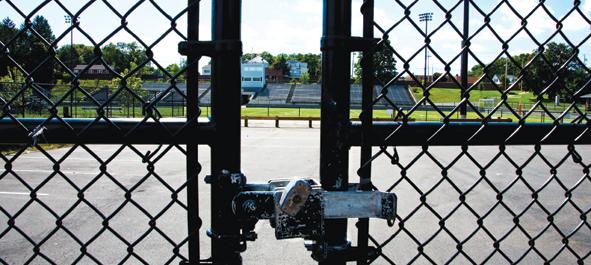As the camera pans in the opening scene of the first episode of “Friday Night Tykes,” we hear this intense statement:
“You have the opportunity, today, to rip their freakin’ heads off and let them bleed. If I cut them with a knife, they’re gonna bleed red, just like you.”
Do you think that it’s acceptable for a coach to talk to his football players in that way? Would you consider it okay if Pete Carroll, the head coach of the Super Bowl champions, the Seattle Seahawks, spoke to his NFL-best defense in that tone?
Before you answer, the coach you hear in the first scene is not talking to NFL players. He’s not talking to grown men, either.
He’s talking to youth football players.
“Friday Night Tykes” exposes the Texas Youth Football Association that is so extreme, the vigorous sound of the helmet-to-helmet — a play that is an automatic 15-yard penalty in the NFL — might make you cringe.
What is it that we want coaches teaching our children? Do we want them teaching life lessons? The fundamentals of their respective sport? Or do we want them teaching children that sports are only about winning?
The lesson from the coaches on “Friday Night Tykes:” win by any means necessary. One coach from the Junior Broncos said, “If that kid comes across, I want you to put it in his helmet, do you understand? I don’t care if you don’t get up.”
The “Friday Night Tykes” series presents a debate not only about youth coaches, but coaches in general.
Coaches hone their own coaching style. There are a select few who take the non-coddling approach (the cruel, angry, intense coaching style displayed on “Friday Night Tykes”).
Although parents are on-hand to watch their 8 and 9-year-old boys be chewed out just so they can win football games, they continue to leave their child in this program. Although the parents see their children in tears, saying, “it’s hard,” they continue to let them experience this behavior.
However, not everyone accepts this conduct.
On April 3, Mike Rice was fired from his head coaching job after a video leaked of him physically and verbally abusing his basketball players.
His players were in college at Rutgers University.
Other than being one of the best coaches to call plays from the sidelines, Bobby Knight is also known for his bad temper and chair-throwing. His behavior was so bad that he was fired from his head coaching job at Indiana in 2000 after he was caught on video choking a player.
His players were also in college.
However, Knight has supporters. He has people who vouch for him and remain loyal because he won. He won 11 Big Ten Regular Season Championships.
The youth organization in “Friday Night Tykes” is considered one of the elite powerhouse programs in the state.
But where do we cross the line? Are we intentionally turning a blind eye to these coaches because they’re winning?
There are a number of situations where coaches are crossing over that invisible line between pushing players hard and abusing them. Some get reported, some are ignored.
But if these football players weren’t young children would we still have the same reaction? Is it acceptable for coaches to talk a certain way to older men as opposed to 8 and 9-year-olds?
But age doesn’t necessarily mean that long-term damage can’t be done. Whether it’s Little League coaches verbally abusing youths or perhaps, Pete Carroll shouting extreme charges to his Pro Bowl cornerback, Richard Sherman, damage can be imminent.
Coaching in America needs to undergo some serious evaluations, and perhaps a national conversation on acceptable ways to treat athletes that you’re responsible for is necessary in the same way that one for bullying in the locker room was needed.
‘Friday Night Tykes’ and the future of coaching
February 12, 2014

The football field has become a house of horrors for some young athletes




















































